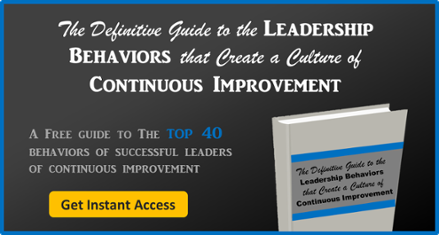 Kaizen events are an effective way to tackle an organization’s most pressing and complex problems in short order.
Kaizen events are an effective way to tackle an organization’s most pressing and complex problems in short order.
During a Kaizen event, which occurs over days, not weeks, a dedicated team spends all of their time focused on identifying the root causes of roadblocks in the value chain, researching possible solutions, and implementing agreed upon changes.
The approach certainly isn’t a substitute for daily Kaizen, but it can work really well for certain types of issues. I say it “can” work really well because it isn’t a given that it will; that depends on your leadership.
Kaizen events that produce results are driven by a determined team leader who understands what they must do to contribute to the team’s success.
If you have been asked to lead a Kaizen event, or if you are going to task someone else with doing so, keep in mind these 10 responsibilities of the role.
#1 – Craft the charter for the event and assemble the right team to achieve the objectives
#2 – Schedule and lead a pre-event kick-off meeting to get consensus on the charter and the event plan
#3 – Lead the mission to gather necessary materials and conduct any prior analysis in preparation for the Kaizen event.
#4 – Identify and communicate any resources that will be needed during the event
#5 - Ensure that all content generated before, during, and after the event is archived for future use
#6 – Keep the team’s work limited to the scope of the charter (unless the charter is redefined and renegotiated)
#7 – Facilitate the team so that everyone has a voice and ensure that all points of view are considered
#8 – Bring the appropriate Kaizen/Lean tools, such as value stream mapping, A3, PDSA and the 5 Whys to the table.
#9 – Lead the team in creating a plan to measure the results of the event at the one-month, six-month, and twelve-month marks.
#10 – Provide lessons learned and guidance to future Kaizen event team leaders
No one person determines the outcome of a Kaizen event, of course, but all great teams have captains who bring experience, education, and a positive attitude to the floor. A Kaizen event requires this kind of strong leadership.
It’s not an easy job, but it can be exceptionally rewarding and a wonderful opportunity to demonstrate one’s ability to work with others to accomplish important goals.



Add a Comment